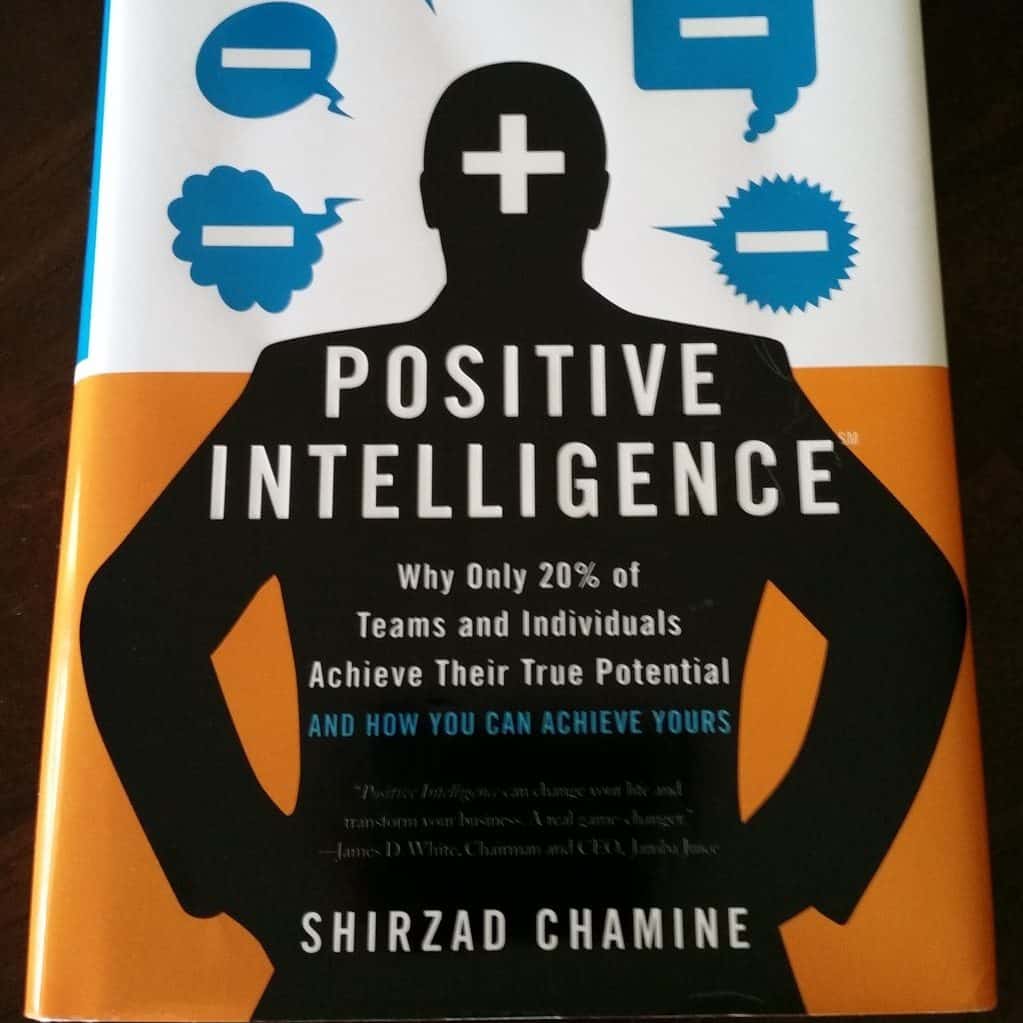In the vibrant landscape of self-improvement and personal development literature, “Positive Intelligence” emerges as a beacon of insight and pragmatism. This book, authored by the distinguished Shirzad Chamine, is not merely a collection of platitudes; it serves as a comprehensive treatise on understanding and nurturing the mental faculties that propel us toward success while simultaneously addressing the self-sabotaging tendencies that often derail our progress.
The essence of “Positive Intelligence” can be distilled into the concept of our “Sage” and “Saboteurs.” Chamine introduces these fundamental archetypes, inviting readers to explore their inner dialogues. Readers can anticipate a thorough delineation of the myriad saboteurs that undermine our potential, ranging from the inner critic to the perfectionist. These characters are not just concepts; they inhabit the psyche of each individual, often wreaking havoc on our mental state and decision-making capabilities. Through engaging anecdotes and insightful analyses, readers will find themselves reflecting on their personal experiences, recognizing the voices that may have impeded their aspirations.
One of the cornerstone strategies presented in the book is the practice of mindfulness to quiet these saboteurs. Readers will discover actionable techniques designed to enhance their positive intelligence quotient. Chamine discusses various exercises, including the “PQ (Positive Intelligence) Reboot” method, which is both accessible and transformative. This engaging section helps readers become acquainted with the art of mindfulness, allowing them to cultivate a reservoir of positive thoughts, ultimately shielding them from the detrimental influences of self-doubt.
Delving deeper into the content, readers will encounter a multifaceted exploration of emotional resilience. Chamine posits that emotional agility is pivotal for navigating life’s tumultuous waters. The book doesn’t shy away from the hard truths of failure and adversity. Instead, it encourages an in-depth analysis of these experiences, urging readers to embrace discomfort as a catalyst for growth. Through this lens, “Positive Intelligence” becomes a compass, guiding us toward better emotional regulation and a clearer understanding of our responses to external stressors.
In terms of structural composition, the book is meticulously organized, offering a logical progression from understanding the saboteurs to actively engaging with exercises that foster positive intelligence. This systematic approach ensures that readers are not overwhelmed but are gradually led through the complexities of their own psyche. Each chapter culminates with practical takeaways—summaries that reinforce the concepts discussed and encourage immediate application in real-world scenarios.
The richness of this text is further amplified by its interactive components, drawing readers into an active engagement with the material. Chamine provides diagnostic assessments that allow individuals to identify their predominant saboteurs. This self-reflective exercise is an invitation to authentic introspection, one that can yield profound insights and foster a greater sense of self-awareness. The revelation of one’s personal saboteurs is often a transformative moment, akin to shedding the light on hidden corners of the mind.
Moreover, “Positive Intelligence” delves into the importance of cultivating a supportive social environment. Chamine posits that relationships play a critical role in our overall mental health and success. Readers will learn how to identify those in their lives who facilitate their positive intelligence and how to distance themselves from toxic influences. This exploration extends beyond mere acknowledgment; it offers strategies for fostering healthier relationships—encouraging constructive communication and empathy. The emphasis on collaboration adds a layer of communal growth that is often overlooked in personal development literature.
Another captivating facet of Chamine’s work is its empirical foundation. The author, drawing from decades of research and leadership coaching, presents data-backed insights that lend credence to his assertions. Readers who thrive on analytical information will appreciate the studies scattered throughout the chapters, lending scientific validity to the psychological principles discussed. Each claim is bolstered by evidence, making the content not only motivational but also intellectually rigorous—a duality that enriches the reader’s experience.
Furthermore, Chamine’s narrative is laced with motivational tales of individuals who have successfully cultivated their positive intelligence. These stories are not mere embellishments but serve as powerful testaments to the principles discussed. Each anecdote, rich in detail and emotional resonance, illustrates the transformative power of shifting one’s mindset. This storytelling element engages readers on both an emotional and intellectual level, creating a compelling case for the practices outlined in the book.
As the reader progresses through the book, they will uncover insightful techniques and methods for reprogramming their thought patterns. “Upgrading your mental software,” as Chamine puts it, is an ongoing process that requires diligence and practice. Readers are encouraged to commit to daily exercises that nurture their sage perspective, emphasizing that personal growth is a journey rather than a destination. The notion that positive intelligence can be developed like a muscle resonates powerfully, fostering a proactive attitude toward self-improvement.
Wrapping up, “Positive Intelligence” by Shirzad Chamine is not just another self-help book—it is an invaluable resource for anyone seeking to unlock their true potential. With its unique blend of insight, practicality, and empirical grounding, readers can expect a transformative experience that reverberates across their personal and professional lives. The guidance offered within its pages serves as a roadmap to a more fulfilled and consciously directed existence, making it a must-read for those yearning to elevate their mental and emotional well-being. Embrace the challenge, and embark on a journey toward a more positively intelligent self!
